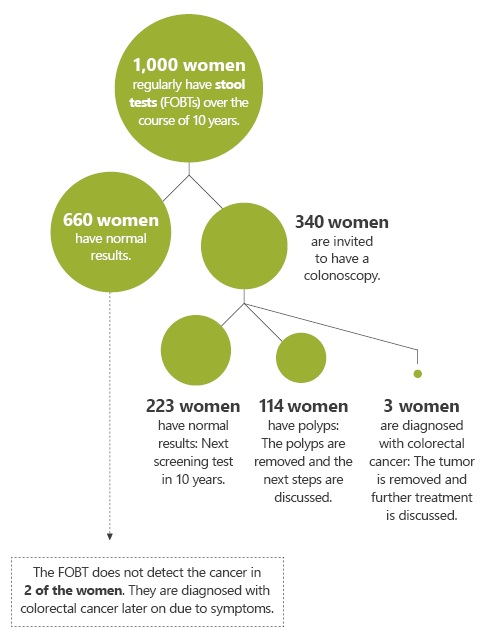Stool test: Information for women

Fecal occult blood tests (FOBTs) can detect hidden traces of blood that may come from cancer or polyps in the bowel. If traces of blood are found, a colonoscopy is done to find out what is causing them. It has been proven that, when combined with a colonoscopy, FOBTs can lower the risk of dying of colorectal cancer.
FOBTs detect non-visible (occult) traces of blood in stool samples. "Hidden" blood in stool could be a sign of polyps or cancer in the bowel. It is often caused by something else, though, such as an inflammation of the lining of the stomach (gastritis).
For that reason, stool tests are meant to be used as preliminary tests. If the FOBT results are abnormal, a colonoscopy is done to take a closer look. This is necessary in order to find out what is causing the bleeding. So doing an FOBT makes the most sense if you're also prepared to have a colonoscopy if the test results are abnormal.
In Germany, statutory health insurers will cover the costs of immunological stool tests that are done for this purpose. They are now used instead of the chemical stool tests because they are more accurate. Women between the ages of 50 and 54 are eligible for one FOBT per year, and then every two years after they turn 55. If the test detects traces of blood, the results of the colonoscopy that is then performed will determine what needs to be done next. If the colonoscopy doesn't find anything abnormal, your next colonoscopy will only be due ten years later. You won't need to have another stool test until then, either.

